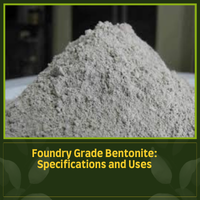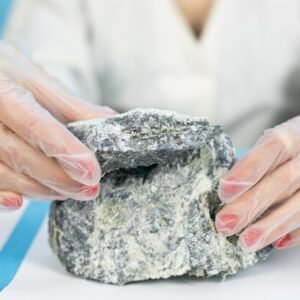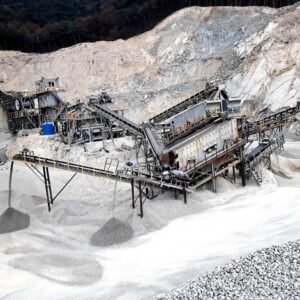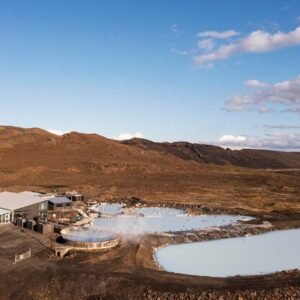Foundry-grade bentonite plays a crucial role in the foundry industry due to its unique properties and versatility. This natural clay material is essential for improving the quality and efficiency of metal casting processes. In this guide, we’ll explore the specifications, properties, and various uses of foundry-grade bentonite to help you understand its value in industrial applications.
What Is Foundry Grade Bentonite?
Foundry-grade bentonite is a type of clay that contains a high percentage of montmorillonite, a mineral known for its excellent binding and water-retaining properties. This grade of bentonite is specifically processed to meet the stringent requirements of the foundry industry, making it ideal for applications such as sand molding and metal casting.
For more information about bentonite’s general properties, visit What Is Bentonite Clay Powder?
Specifications of Foundry Grade Bentonite
The quality of foundry-grade bentonite depends on its chemical composition and physical properties. Here are the key specifications:
1. Chemical Composition
- Montmorillonite Content: 60-80%
- SiO2 (Silicon Dioxide): 45-55%
- Al2O3 (Aluminum Oxide): 15-20%
- Fe2O3 (Iron Oxide): 5-8%
- CaO (Calcium Oxide): 2-5%
- MgO (Magnesium Oxide): 1-3%
For a deeper dive into bentonite’s composition, explore Science and Composition of Bentonite Powder.
2. Physical Properties
- Swelling Capacity: 18-20 ml/g
- Moisture Content: 8-12%
- pH Value: 8-10
- Particle Size: 90% passing through 75 microns
- Thermal Stability: High resistance to heat
Key Properties of Foundry Grade Bentonite
1. Binding Strength
The high binding strength of bentonite ensures the durability and stability of sand molds, which are critical in metal casting processes.
2. Thermal Stability
Foundry-grade bentonite withstands high temperatures without degrading, maintaining the integrity of molds during the casting process.
3. Water Retention
The clay’s water-retaining capability ensures uniform mold hardness and prevents cracking or deformation.
4. Reusability
Foundry bentonite can be reused multiple times, making it a cost-effective solution for the foundry industry.
Uses of Foundry Grade Bentonite
1. Sand Molding
Foundry-grade bentonite is primarily used in green sand molding, where it acts as a binding agent to form strong and durable molds. The clay ensures the sand holds its shape and provides an excellent surface finish for castings.
2. Metal Casting
The high thermal stability and binding properties of bentonite make it indispensable in the production of ferrous and non-ferrous metal castings.
3. Core Production
Bentonite is used in core sand formulations to create intricate and precise molds for casting applications.
4. Pet Litter Manufacturing
While not a primary use, the same binding properties of foundry-grade bentonite make it suitable for manufacturing high-quality pet litter.
Advantages of Using Foundry Grade Bentonite
1. Improved Casting Quality
Bentonite ensures the production of smooth and defect-free castings by providing excellent mold stability.
2. Cost-Effectiveness
The reusability of bentonite reduces production costs in the foundry industry.
3. Eco-Friendly Solution
Bentonite is a natural and biodegradable material, contributing to sustainable industrial practices.
4. Versatility
Its unique properties make it suitable for a wide range of casting processes, from small-scale operations to large industrial foundries.
How to Choose the Best Foundry Grade Bentonite
1. Check Purity Levels
Ensure the bentonite has a high montmorillonite content and low impurities.
2. Evaluate Swelling Capacity
Higher swelling capacity indicates better binding strength and water retention.
3. Source from Reputable Manufacturers
Buy from trusted suppliers like bentonite manufacturers in India to ensure quality and consistency.
Types of Foundry Processes That Use Bentonite
1. Green Sand Casting
This is the most common application of foundry-grade bentonite, where it binds sand and water to create strong molds.
2. Dry Sand Casting
Bentonite is used in dry sand molds, which are cured with heat to increase their strength.
3. Investment Casting
While less common, bentonite can be part of the slurry coating in investment casting molds.
Environmental and Safety Considerations
Using foundry-grade bentonite is generally safe, but some precautions are necessary:
1. Dust Control
Minimize exposure to bentonite dust by using protective equipment and proper ventilation.
2. Sustainable Disposal
Recycle and reuse bentonite wherever possible to reduce waste and environmental impact.
3. Eco-Friendly Sourcing
Choose bentonite that is mined and processed using sustainable practices.
Frequently Asked Questions
Q1: Can foundry-grade bentonite be used for other applications?
Yes, its properties make it suitable for pet litter, drilling mud, and water treatment.
Q2: What is the shelf life of foundry-grade bentonite?
When stored properly in a dry environment, it has an indefinite shelf life.
Q3: How does bentonite improve mold quality?
Bentonite enhances mold stability, prevents cracking, and ensures a smooth surface finish for castings.
Conclusion
Foundry-grade bentonite is a vital component in the foundry industry, offering unmatched benefits like superior binding strength, thermal stability, and cost-efficiency. By understanding its specifications and uses, you can harness its full potential to improve your casting operations.
For more insights into bentonite and its applications, explore:







